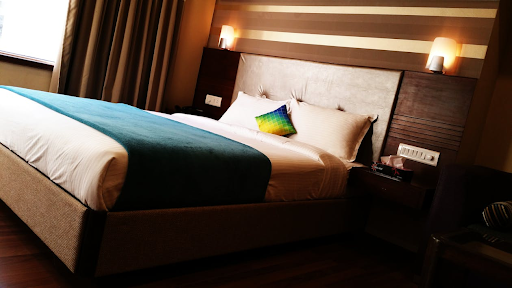Not all hotels are alike. That much is clear the more you travel. Some may offer a bargain and be run like a well-oiled machine, while some may be “luxury” in name only and make you question how on earth it attracted such a reputation.
Travelers choose different hotels for all sorts of reasons, often cost being the most pressing of these. But the truth is that unless a hotel is hygienic, secure and safe, it’s not worth staying in. If it is, then you may be able to overlook issues like an expensive or less-tasty breakfast than the rest.
But how do you spot a dangerous hotel in advance? After all, it’s not like booking sites tell you, nor is a business going to warn you away from them before you arrive. Even reviews can’t always be trusted, because it’s easy enough to fake positive impressions on various aggregate sites with some consistent effort. Any accident lawyer worth their salt will tell you that the best way to avoid a costly recovery period is to avoid unnecessary danger as much as possible.
Where are you supposed to even begin? Well in this post, we hope to help you along that path, to stay somewhere you can reliably rest your head:
Check Door Lock Strengths
Sometimes, the hotel door automatic closers and locks are less secure than they otherwise seem. If you can swipe a credit card and open up your door latch, that’s a sign you shouldn’t stay in that room. The same could be said for doors that are stiff to open and take time to break out of – in a fire that could be highly dangerous. Also ask how and if they lock up at night, what the general level of security is, and how they take bookings and manage your personal info – if this is all just in a ledger on the front desk, someone could steal that (and your information) quite comfortably.
Check Maintenance Conditions
If most of the lights are out or blinking in a corridor, are we really going to assume that they care about elevator maintenance, or upkeep on the smoke alarms and fire extinguishers? Possibly, but that’s not a given. Maintenance might also include certain elements in the room such as if a bed has been properly maintained, if window latches are secure (essential in high buildings) or if the air conditioning or maintenance system works without bangs and splutters. While one poor sign might not be a signifier of real danger, it’s not exactly a huge vote of confidence. If you wanted to move or change rooms because of this, you’re well within your rights to demand a refund/switch.
Small Hygiene Issues
A lack of hygiene is the number one potential danger in a bad hotel. If the bedsheets haven’t been washed, if there’s gunk in the shower unit, if there’s damp on the walls, and heaven forbid, if you find hairs or weird stains, then it’s best to leave. You simply don’t know what’s been happening in that room and why, and for that reason leaving is appropriate, just make sure to take pictures to give you more evidence in your refund request.
WIth this advice, we hope you can more easily spot a dangerous hotel and run a mile should you come across one.

Leave a Reply